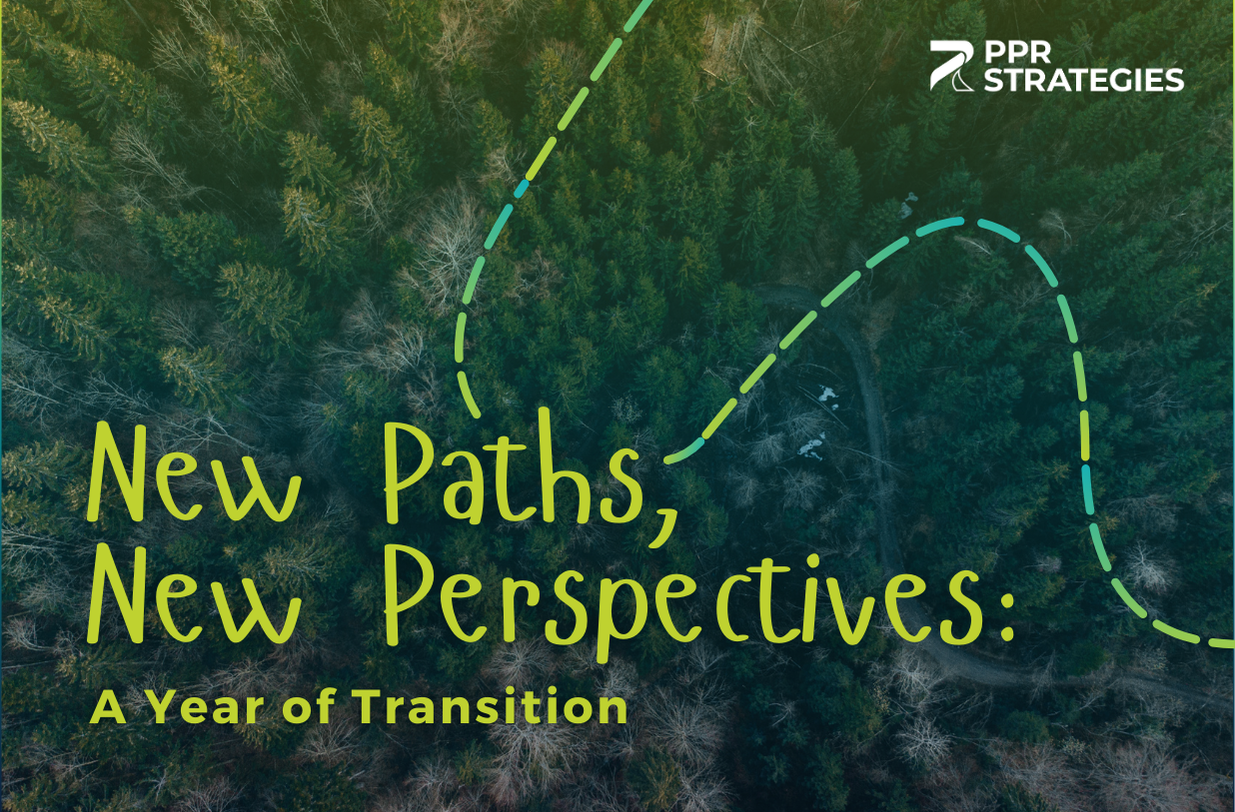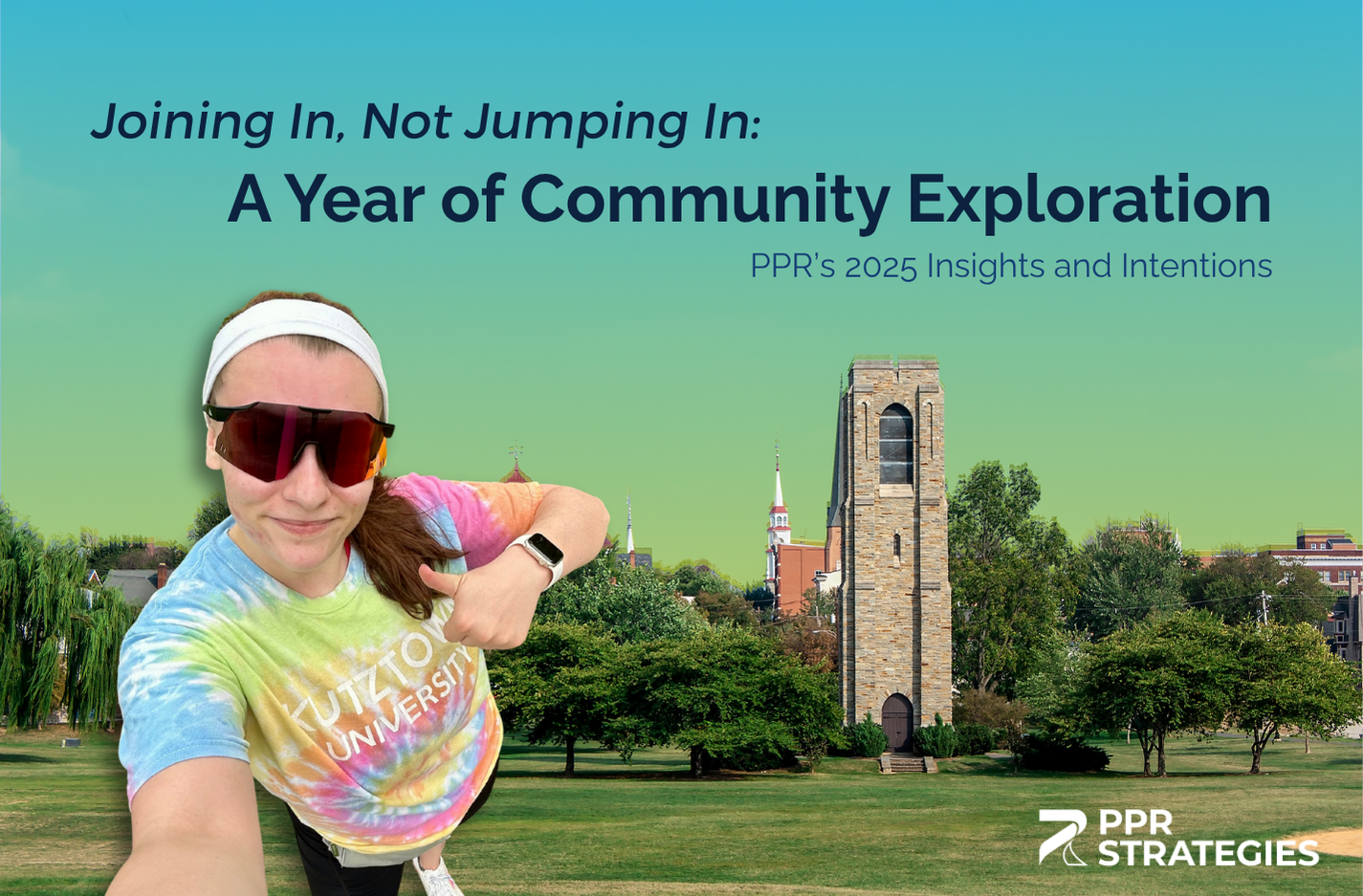
Manal (second from the right) and other members of the George Mason University American Marketing Association, Fall 2024.
This blog is contributed by PPR Strategies’s Fall 2024 intern, Manal Chaali. 

As artificial intelligence (AI) continues to evolve, it has sparked an ongoing conversation about its ethical implications. It is more important than ever to ensure that AI is being used ethically and responsibly.
As PPR Strategies shares its series on AI platforms and their use in the EDO sphere, it is important to be aware of the ethical issues revolving around AI so that users can take steps to address concerns and avoid common pitfalls.
Top Ethical Challenges Involving AI:
Privacy
The top concern that many people have with AI is its impact on their privacy, and rightfully so. The content generated by AI relies on the data fed into the platform, which can sometimes include personal information. Privacy raises concerns about how that data is stored, whether info is protected from potential breaches, and how the data is used. Some steps can be taken to lessen those concerns. Implementing a robust data privacy policy can help EDOs ensure that their teams understand the potential implications of feeding information into AI platforms, know about gaining informed consent for data collection, and are aware of the organization’s stance on AI use.
Transparency
As AI continues to make decisions that impact people, stakeholders want to be aware of how it is implemented in practices that affect them day-to-day. For example, employers that use AI to sift through resumes may raise concerns about the fairness of the selection process. Collaboration among ethicists, developers, and policymakers is needed to ensure that AI decision-making processes are ethical and accurate. In the world of EDOs, education is the first step to helping leaders and teams understand how this ever-changing technology functions so they can be their own advocates to ensure transparency and reasonable use. To maintain transparency and build trust, EDOs can consider adding disclaimers to any visuals created with AI. This helps ensure viewers are aware of AI’s role in the process, reinforcing credibility and openness.
Data Bias
Data bias happens when the data used to train an AI system is not representative of the entire population. This can lead to discriminatory or unfair results. To prevent this, developers and programmers must gather diverse data and regularly audit and update the dataset to reflect changing demographics and societal norms. For EDOs, it is important to remember that data pulled from AI may come from a narrow lens and research further to ensure that their work is reflective of larger communities.
Ethical Guidelines
The International Association of Business Communication (IABC) has set guidelines for communication professionals. These principles can be adapted to guide economic developers as well.
Human Oversight
AI tools to gather data and insight should be constantly monitored by humans. Economic developers that utilize AI should always be up to date on its opportunities and risks.
Accuracy and Verification
AI can generate economic models and projections, but these should always be checked by experts to ensure the accuracy of the results. Economic developers should consider AI as a tool to help them identify trends and potential investment opportunities, but they should also thoroughly research AI-generated suggestions before making a decision.
Legal Compliance
Economic developers should make sure that their AI use complies with all relevant laws and regulations, especially regarding data privacy. This is extremely important for maintaining public trust and avoiding legal issues.
Confidentiality
AI tools can be used to analyze economic data. This information must be protected using secure storage and sharing practices. This is vital for maintaining the confidentiality of businesses and individuals.
Transparency
Again, it is important to disclose when AI is used in economic development decisions to keep stakeholders’ trust. This transparency also allows for accountability.
As AI platforms continue to advance and become more widely used in many fields, including economic development, it is important to proactively promote safe and ethical practices. This way, AI can benefit the industry while minimizing its potential risks.








